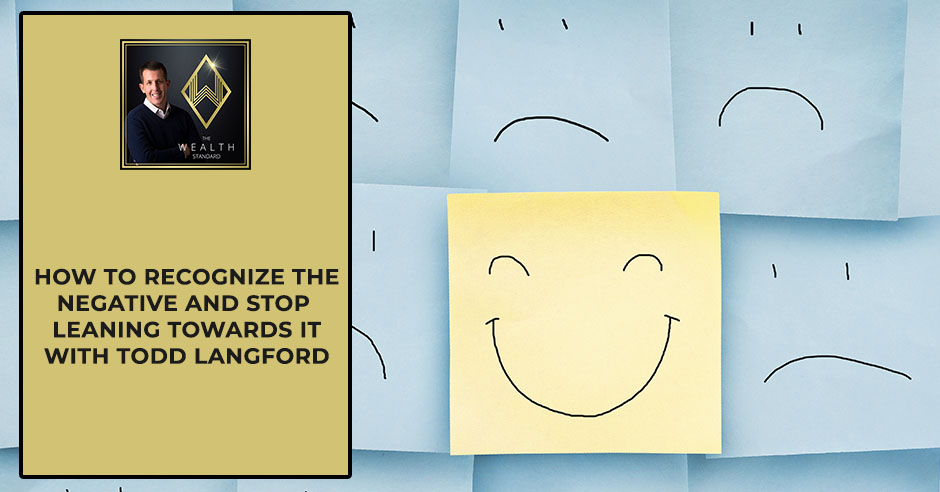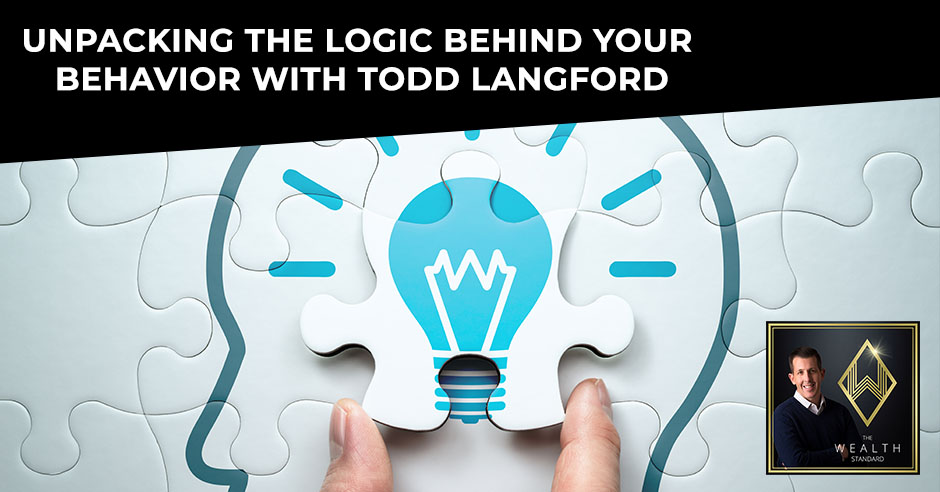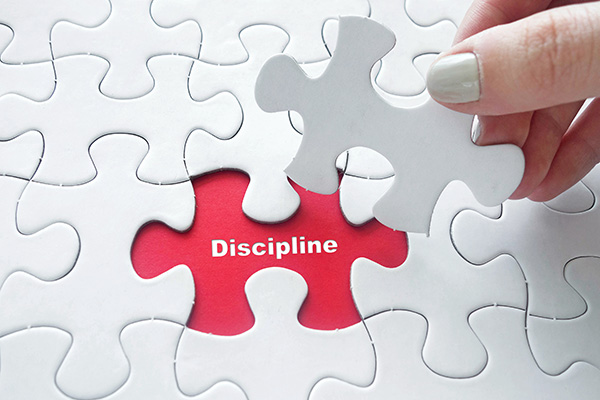Decoding Greatness: Reverse Engineering Success With Ron Friedman
Podcast: Play in new window | Download
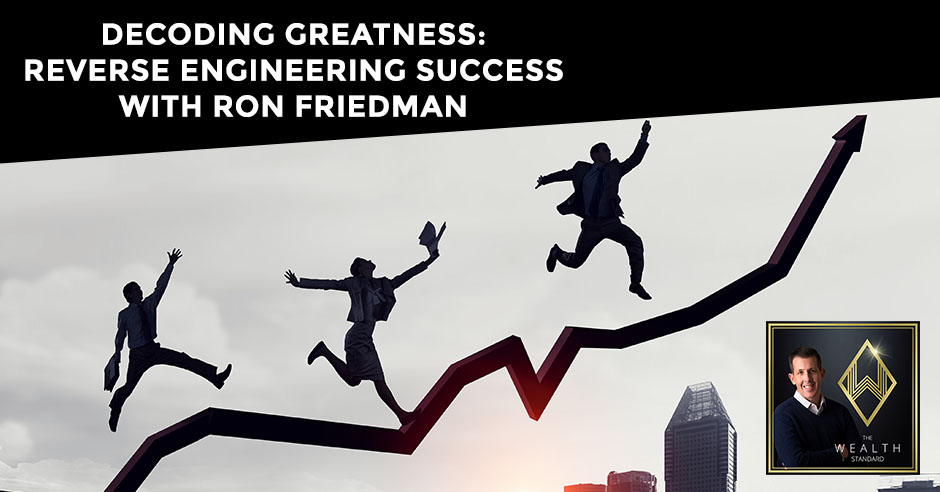
Is top performance something you’re born with or do you have to practice 10,000 hours to achieve it? If those are the only two choices, then most people would have given up on success already. But what if somebody said you could reverse engineer success and get to it quicker? Award-winning organizational psychologist and nonfiction author Dr. Ron Friedman goes one step further. In his latest book, Decoding Greatness, he argues that we actually reverse engineer top performance all the time. The missing key is being intentional about it. In this conversation with Patrick Donohoe, Ron explains how his book and the free course that goes along with it teach us how to emulate what the greatest thinkers and doers in history have done to carve their own path to success. Do you think you’re not born with enough talent to make it? Is practicing 10,000 hours too much of an investment for you? Tune in and learn why you shouldn’t give up on success just yet.
—
Watch the episode here:
Listen to the podcast here:
Decoding Greatness: Reverse Engineering Success With Ron Friedman
I have been studying mental models and information frameworks. The reason being is I’m learning that more information is not beneficial to people. Our brains are designed to survive. They’re old and have not evolved to the point where we’re able to properly evaluate and understand new information, especially as it relates to making progress. Our brain forms these shortcuts that allow us to make sense of things, but they are cognitive biases, preventing us from understanding new information and evaluating new processes. These mental models and frameworks are a more conscious and intentional way of understanding new information. More information without these mental models and frameworks will go in one ear out the other. We will continue to reinforce what we already believe and understand, which prevents us from getting what we want. I’m going to speak to that more in more detail on the next episode.
In this episode, I have an organizational psychologist joining me. He has a new book out that we discuss. It is an informational framework that you will want to know about. Dr. Ron Friedman is an award-winning psychologist. He is serving the faculty of the University of Rochester. He has consulted political leaders, nonprofits and many of the world’s most recognized brands. He is published in multiple newspapers, The New York Times, The Washington Post, The Guardian and magazines like Psychology Today and the Harvard Business Review. I can keep going on and on with his accolades.
He founded an organization called Ignite80 which is a learning and development company that translates research in Neuroscience, Human Physiology and Behavioral Economics into practical strategies that help working professionals become healthier, happier and more productive. The 80 out of that company name is based on studies that have been done that show the percentage of employees who are disengaged at work.
His new book is Decoding Greatness which is a way to reverse-engineer success and apply it to your specific life. It’s a great mental model or information framework. You should pick up the book. There is also a website that you can get access to. The access is a free course. All you have to do is buy the book, take a picture of the receipt and then upload that to a link that is available on DecodingGreatnessBook.com, which will show you how to apply this information framework or mental model to your life to gain even more success. Thanks for supporting the show. Enjoy this interview with Dr. Ron Friedman.
—
Ron, it’s awesome to have you on. From your background, you’re a voracious reader and intellectual. You’ve already written one book. I’m excited to interview you. Thanks for taking the time. Welcome to the show.
It’s my pleasure.
I thought it would be helpful to start with what led to the decision to write another book. You wrote a book in 2014. Writing another book is quite an endeavor, especially Simon & Schuster being your publisher. What led to that decision?
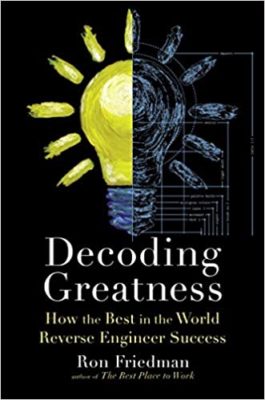
Decoding Greatness: How the Best in the World Reverse Engineer Success
I love reading. One of the best ways I can apply reading academic journal articles is translating that into plain English so that everyone has access to the insights. That’s the genesis of my first book called The Best Place to Work. In that book, what I did was I took over 1,000 academic journal articles and translated them into plain English so that regardless of whether you’re a CEO or someone starting out, you had access to the latest science about how to elevate your performance and create a great workplace. My background is in Social Psychology. My experience was I left academics after teaching for a period of years and I joined a polling firm. My job was to measure public opinion, figure out what customers believe and how we shift those opinions by applying psychological principles.
In that experience of being in the corporate world, after having studied top performance in the lab and writing about it in academic journals and book chapters, what I discovered was that there’s a massive gap between what science knows and what business does. I wrote a book that showed organizations how to become great workplaces, but there was something missing from that first book. What was missing is that even within the best organizations, there’s a range of performance levels. Some people are top performers, others are not. The question was, “What are top performers doing differently?” That became the focus of Decoding Greatness which identifies a particular skill that they have that is learnable to all of us that we can then use to both accelerate our abilities and succeed faster.
How would you characterize we? You put us in a group as far as how we succeed faster. Who’s the person that was in your mind as you were writing?
I’m thinking about business professionals who do work that involves some level of creativity and that’s about any kind of knowledge worker. If you think about creativity, the prototypical thought that comes to mind is artists or poets but creativity at its core is about problem-solving. We all need to be creative in the way that we approach to solve problems. If your job involves any problem-solving or creativity, this is a book that’s going to show you how to succeed faster.
How would you characterize the obstacles? What was in the way of those who were in these creative leadership positions? What holds them back?
This is the big idea of the book. If you think about the stories we’ve been told about how people succeed they fall into two camps, the first story is that greatness, top performance or success comes from talent. The idea is we all have certain inner strengths that we’re born with and the key to finding your greatness is to identify your talent and then find a field that allows your innate strengths to shine. The second story is that greatness comes from practice. This is the Malcolm Gladwell story, 10,000 hours and practice. Eventually, you will elevate your skills and get to a higher level of performance but within knowledge work and work that involves creativity, thought and problem-solving, there’s a third story. It is one that people don’t often talk about but it is a remarkably common path for artists, entrepreneurs and inventors. That path is reverse engineering.
Reverse engineering simply means finding examples that are the best in your field and then working backward to figure out how they were created and how you can apply them to create something entirely new. Within Silicon Valley, this is an approach that is very well-known. This is how we got the personal computer, laptop, mouse and iPhone but it’s also how Stephen King and Malcolm Gladwell learned to write, Pablo Picasso and Claude Monet learned to paint and people like Judd Apatow learned to write comedy. Reverse engineering turns out to be a lot more common than anyone had ever realized. It’s something we don’t often talk about. I wanted to bring it to the fore demystified and show people how they can apply it in their lives to become more successful.
When it comes to top performance, there is a massive gap between what science knows and what business does. Click To TweetYou, as a psychologist, the specialty and understanding what makes people tick and why do they do what they do, you have to look at the two primary stories that you referenced. Those stories have been recurring over again. With psychology, we’re designed in a sense to develop habits. We keep doing things the way we’ve done them and it’s hard to break those habits. What are typically the events, feelings and experiences people in the camp of repeating those stories thinking that’s the road to success? What do they have to experience in order to be open to a new story?
There’s some truth to both of the stories. I’m not suggesting that talent or practice doesn’t matter. Both of those things matter. The challenge with those two stories, however, is that they’re not the only paths. More than that is we’ve been told these stories for so long that they’ve become problematic from the perspective of, “If I don’t feel like I have talent or ten years to invest in practice, then I capitulate.” I’m like, “Greatness is for somebody else. That’s not for me but this is a faster way to learn.” Part of the reason this has remained under the radar for so long is because we’ve been taught that if you study someone else’s work too closely then you’re going to copy their work, hack and there’s something wrong with you.
The truth is that’s how learning happens. We study others, figure out what their model is and then find a way to make it our own. To be clear, this isn’t about copy because even if you do copy, chances are you won’t be successful. The reason you won’t be successful is, let’s say I figured out what you’re doing on your website, I steal it and making my own. Some countries do that. They copy products and intellectual property. It’s not what we’re talking about. What we’re talking about is having an analytical framework for understanding why something works. To follow through on that example, if I copied your website, am I going to have the same revenue as you have? No, because there’s going to be a mismatch between my expertise, experiences, personality and your execution, number one. Number two is that audience expectations shift over time.
I gave an example in Decoding Greatness of the book Twilight. Everybody remembers this book. It’s about a teenager falling in love with a vampire. After Twilight came out, there was an explosion of young adult books about kids falling in love with vampires and they all failed. It wasn’t because they were all terrible. It was because audiences were familiar with the formula and were bored by it. What worked was a few years later, Abraham Lincoln fighting vampires. That exploded because it evolved the formula. That’s what we’re talking about. It’s figuring out why something works, identifying the different elements that make it unique and then combining it with other elements to evolve it in a new direction that allows you to be more successful by leveraging something that was successful in the past but also evolving it to make it consistent with your actual strengths.
What comes to mind as you were giving that example is that directly copying something is prone to failure. At the same time, there’s a framework such as a hero’s journey that is evident in so many different movies and books, yet it’s this very similar if not the same framework that then could be applied to what you were referencing before, the uniqueness and individual creativity of somebody.
I’ll tell you a story that builds on that. This a story in the first chapter of Decoding Greatness about Kurt Vonnegut. Everyone has heard that name. He is a very famous writer. What Kurt Vonnegut would do for fun is take stories and turn them into pictures. What I mean by that is he would graph them out where on the X-axis at the bottom from left to right was time from the beginning of the story to the end of the story. On the Y-axis from the bottom to the top was the trajectory of the protagonist’s fortune. Meaning, “How are things going for the main character? Are things good or bad?” As he did this what he realized is that if you take all the stories ever told, there are six basic stories. One of them is the hero’s journey. He called it the man in a hole.
The other thing he realized when he did this was that a lot of the stories that we have fallen in love with we don’t realize them but they’re the same story. They have different characters. He gives the example of Cinderella and compares that to Annie. If you think about it, it’s the same story. At the beginning of the story, both Cinderella and Annie are in a bad place. Annie is an orphan on the street. Cinderella was being abused by her stepsisters and stepmother, then something good happens. Cinderella gets invited to the ball. Annie gets rescued by Daddy Warbucks then something bad happens. Annie gets taken by people pretending to be her parents. The clock strikes midnight. Finally, they both live happily ever after by being reunited with the person they were meant to be with all on. It’s the same story. We don’t realize it.

Reverse Engineering Success: A lot of the stories we have fallen in love with are the same story. They just have different characters.
Years later, computer analysts took thousands of movie scripts, Broadway shows, novels and looked to see what the patterns were. What they found was, analytically, Vonnegut was right. There are six basic stories. Once you know those formulas, many things become clear. For example, Harry Potter is a book that we all love. The movie is great. When you read it, it’s so easy to be enchanted by the characters, setting and storyline. When you step back and analyze what’s happening, what you realize is, “This isn’t the first time I’ve heard of an orphan who is living with his aunt and uncle who has whisked away on an adventure to find an evil villain and discovers their secret powers. There’s another story like that and it’s called Star Wars.” That doesn’t mean that JK Rowling’s work isn’t creative, entertaining or remarkable, but when you recognize that there’s a formula at play, that empowers you to create your own unique fit.
That’s why I wanted to go off on that tangent again. It’s the idea that there are these formulas out there that you can copy using the word you used before. It doesn’t mean that you’re not creative or unique. A lot of it is Psychology. You can have a lot of psychological background as to why these stories lead to a successful outcome. Let me get into the third story that you’re talking about, reverse engineering. What is that formula? How can somebody take that formula and apply it to their uniqueness and creativity?
What I love about this is that it is applicable to any field. Regardless of what you do, there’s a way that you’re going to be able to apply this. It is distinct to the particular field. To give you some examples, I’m a writer. Non-fiction writers will often go to the back of the book to the bibliography to see, “What are the sources that went into creating this book?” Chefs will order dishes to go. They’ll take an intricate sauce and line it up on a white plate. Sometimes there’s a magnifying glass involved and they’ll look to identify, “What are the ingredients that went into this dish?” Photographers will look for clues that are hidden within the image. For example, they’ll look at the reflection in the eye of the person in the image because that tells them where the light source was placed. They look at the length of the shadows that tell them the intensity of the light.
I don’t do that because I’m a novice but experts have these techniques that they use to work backward and deconstruct how something was created. The critical thing is to think about don’t passively enjoy something when you come across it, whether it be a website, well-written email or presentation deck that you found impactful. Take a step back and think about, “What’s different about this example? What can I learn from this? How do I apply this to the thing I’m working on?” To make this concrete, the first step to reverse engineering is to become a collector. What I mean by that is to start your collection of works that you consider remarkable. When we think about collections, we think about physical objects, artwork, wine or stamps. That definition is way too narrow. Collections extend to knowledge work as well. Designers collect logos. Marketers collect websites. I’m a writer. I collect powerful words, stories, academic articles and sometimes I look to pair them up, “What’s a good story that connects to this study?” That’s the key to supercharging your creativity.
Also, once you have that collection, you can start comparing what’s in that collection versus what didn’t make it. That process is like playing Spot the Difference, which we played as kids. We got two images side-by-side and compare them, “What’s different about this versus the other?” That’s what you’re looking to do here because of that process of getting analytical about, “What’s different about this?” example, once you do that consistently, you can’t help but identify the ingredients that made it successful and you’re forcing yourself to think on the blueprint’s level. You’re not thinking about like, “What’s happening on the word level?” You’re zooming out and looking at the totality of a piece. That’s where you start identifying patterns.
Let me take a step back when a person goes in and decides, “I’m going to start identifying patterns outside of what I’m doing to lead to more success.” It’s typically because they face some chokeholds, disruptions or challenges. Talent and effort only got them so far. The frustration of not being able to get to the next level typically in my experience at least leads to, “I need to find another path.” This next path is, “I’m going to go and reverse-engineer the successes that I see whether it’s at the macro-level or micro-level like a website, book, movie or leadership style.” When you’re reverse engineering this, what’s the other part of the formula where someone is able to extract the ideas and then apply them to their particular situation?
First, if you’re waiting until you’re in a bad place, that’s too late, you got to do this all the time. This is a mindset. This isn’t about a one-time shortcut or fix. We talked about starting a collection. You need a process. That process should be easy for you to use so that you use it. If it’s not easy, you’re not going to do it. For me, it could be bookmarking things. I can put things into Google Docs. Some people like to use Pinterest. You need a process that allows you to dump it somewhere quickly so that you don’t have to think about it but then you have that option to revisit it later on.
Figure out why something works, identify what makes it unique, and combine it with other elements to evolve it in a new direction. Click To TweetYou asked, “What becomes the process for using this?” The answer is once you’ve started analyzing what makes things unique, you can create a template. I like to use the word templatized. It’s not a word. It should be a word because you can take a well-written email and figure out what’s happening in each of the paragraphs. I call this reverse outlining. Outlining is when you bullet-point what you’re going to put in a finished piece. Reverse outlining takes somebody else’s finished piece and then works backward to create an outline of what is happening in terms of order and chronology. Once you do that, you can create a template for yourself.
I’ll give you an example of how I learned this. This is how I came across the idea of reverse engineering and what initially sparked the book. In graduate school, I needed to write academic journal articles in order to get a job as an academic. I didn’t know how to do it. It was a painful process. Nobody taught me how to do it. There was no course on how to write academic journal articles. Everyone was supposed to go figure out how to do it themselves. For a long time, I was stuck. Until one day, I decided, “Instead of trying to stare at a blank screen and try to come up with it, I was going to take some other academic’s work, bury myself in it and read one article after another. Because this guy was a great writer, I wanted to understand why he was great.”
Through that process of reading one article after another, what I came across was a formula and it was apparent once you had read every article one at a time in a row. What you would discover is that he starts off the article by posing some startling facts, something that was surprising and eye-opening then he would pose a rhetorical question, do a literature review and then present his thesis. That was the formula. Once I knew that I had a template for writing academic journal articles. All I needed to do was find my startling fact, pose my rhetorical question, do my literature review and then present my thesis. That was my approach to identifying his formula.
Once I knew how to do that, I realized that I had an approach that I could use for writing anything. It’s how I wrote my first book proposal, book and presentation decks as a consultant, finding great examples, working backward, creating a template and then applying it. When I would share with people what I was writing in Decoding Greatness, if they were a creative professional, invariably the reaction was the same, which is, “I’ve been doing that all my life and never read about it. I didn’t know that was a thing.” The intention in writing this book is to show people, “This is how the top performers are doing it and how you can apply it to create your marketing materials or whatever it is you need to create, this is an approach that can help.”
Something is coming to mind and this may seem somewhat bizarre. Elon Musk has praised this idea of reasoning by first principles and talks about what first-principles thinking is versus how most people think which is thinking by analogy, taking what already exists and applying that by slight variation. How does reasoning by first principles differ than reverse engineering? Are there some similarities and harmony with those two ideas?
Reasoning by first principles is breaking something down to the primary purpose. If you look at Tesla, Elon Musk says that the first principle that led to Tesla’s success was creating a sustainable battery. If you go to SpaceX, he says that first-principles thinking led to being able to recycle rockets. It leads to this fundamental baseline idea. It wasn’t taking the electric car that already existed and improving it. In a sense, it’s reverse engineering. That’s why I’m asking the question, breaking it down to the fundamental principles and reasoning up from there.
I want to distinguish between reverse engineering as figuring out how person A created something versus reverse engineering as figuring out how I can learn from that thing that he created and recreate it myself. My focus is more about how I can recreate it much less than what was their intention or how they went about it because that’s irrelevant for me. What I’m more interested in is how I can build my skills. That’s the way I look at it. For example, I might be able to give you an analysis of Barack Obama’s speaking style or how Malcolm Gladwell writes. In the book, I reverse-engineer the most popular TED Talk of all time. It’s Sir Ken Robinson. I show you what he’s doing differently versus everyone else. I’m not interested in how he wrote it. I want to understand what makes it work and what I can learn from it.

Reverse Engineering Success: The first step to reverse engineering is to start your own collection of works that you consider remarkable.
That’s where I see a harmony between the two ideas. That’s what I was trying to get to because it’s not necessarily using words or body language. It’s not the specific point but it’s more of the framework and the outlined idea that is general enough but not specific to exactly what they were talking about. Your book goes through a lot of this. As you look at what makes people tick, everyone wants to be successful but people aren’t. Some of it is the unwillingness to change because it is too hard.
It provides again that third path which I like. It’s not to discount necessarily paths 1 and 2 because there’s still relevance there but this is path 3, which is more of a shortcut. It’s the ability to find what’s already successful and the commonalities so that you can be successful. Number one, what are some examples that you’ve seen based on this work that led you to believe that this was the truth? What have you seen as failures of a person not able to take these ideas and apply them to their situation? It’s important sometimes to identify the successes but also, if you don’t use it, what’s going to happen?
We talked about Vonnegut as an example. He’s a prime example because it’s a real creative field. I’ll show you ways in which other people have applied this in a way that perhaps is different than the way you’re thinking. One of my favorite stories in the book is the story of Barack Obama. Most people don’t realize this. When he first entered politics, he was a little bit of a disaster. He got trounced his first race for Congress. He lost by a margin of more than 2 to 1. The problem, if you can believe it was that he was a terrible speaker. He was a law school professor. He was used to talking in abstractions and lecturing students. Voters do not like to be lectured to and they let them know when it came time on Election Day. He was lost for a while, broke and thinking about leaving politics.
When someone in his campaign staff said, “Why don’t you take a look at what pastors are doing at the church and how they’re engaging their listeners?” He came back a little while later and all of a sudden, his speaking style was transformed. He was now telling stories from the Bible, using repetition and inflections on certain words. He was modulating and his tone was slowing down at times for effect. That approach transformed him and the rest is history. What I love about that story is that Barack Obama didn’t go and find his talent. He didn’t spend 10,000 hours practicing. He looked at what was working in a different field and incorporated it into his approach. That systematic approach of looking around at other fields not what’s going on in your industry turns out to be critical. It’s to identify and spot the difference, “What are they doing differently? How do I apply this to my field?”
Another great example of this is The Doors’ Light My Fire. When you hear Light My Fire, it sounds pretty different. When you look at the story of how that song was written, initially, they came up with a song that was rock and roll. Some people in the band didn’t like it. They called it Sonny & Cher, which at that time was a way to dismiss something as not being unusual. It’s mainstream and lame. They decided that they were going to riff on this rock and roll song by adding elements from other genres to make it a little bit different. They added bossa nova to the beat and baseline. They started the song by riffing on Johann Sebastian Bach. Those different musical elements are combined to create something that was completely unique.
It was by looking at what was going on in different genres and combining the elements. That’s how creativity happens. “What happens when you don’t do this?” The problem is that we think that creativity is about thinking deeply and going inside, but that’s not how creativity happens. Creativity happens by looking at what’s going on in other fields, genres and combining the elements that are working into unique and novel combinations. We’re often told that practice is the way to get better, but the problem with that formulation is that outside of sports, you can’t practice an idea you’ve never considered. If you are looking inward and operating within intellectual blinders and if you want to get better, particularly in knowledge work, if you’re working in any white-collar job, the only way to get better is to study others and figure out why it is that their work is successful and how you can apply that to your work.
What goes through my mind is people are naturally inclined to be creative. It’s the formula for expression. There is no formula. People try to express themselves in different ways, and it doesn’t work. This is ultimately a formula so you can take that unique creativity and have the formula to express it successfully.
One of the formulas for evolving is willful ignorance. Click To TweetTo make this concrete, let’s say you’re a real estate magnet reading this and you want to start a podcast. You have a formula you could potentially use by the one that’s used here or you can listen to other podcasts and figure out what you like about those podcasts and what makes them different. You can combine those elements and use them with your expertise to create something that is brand new that allows you to express your ideas in a completely new way.
The alternative to this is to find your talent. What are you good at? Think about it for yourself or practice. By the time you have practiced your 10,000 hours, no one is listening to your podcast because you were terrible the first 10,000 hours. You’ve got to get it right out of the gate. The way to do it is by reverse engineering what’s working for other shows. Maybe figuring out what other genres or forms of entertainment capture your attention and see what’s working there.
In my case, I’m a writer. It would be easy for me to say, “Gladwell is the most successful writer. Why don’t I figure out what he’s doing and apply that formula?” That’s not going to work because many writers have tried that. His work is now popular. People are aware of the formula. It’s not going to work if you copy his formula. In my case, what I have found as a reader is that I don’t have the patience for long stories. I like quick stories that get right to the action item. I embrace that about myself.
In my book, I’ve got hundreds of stories about both celebrities and business titans that show you why what they’re doing is working and how you can apply it. That style is a little bit different because it’s quick and action-oriented but I embrace that about myself as a reader and I’ve emulated that. I made it concrete as a writer and executed against it. The point here is not simply to copy blindly. It’s to be more sensitive to why something is successful, listen to your preferences and be methodical in bringing that to life.
Ron, this has been awesome. I’m learning a lot and looking forward to reading/listening to your book. Any final words? There are some definite nuggets of wisdom in this interview. Anything else you want to leave the audience with?
I want to emphasize something we said, which was that the stories that we tell ourselves about success matter. If you have assumed that you don’t have the talent or the 10,000 hours and therefore it’s too late for you to either switch careers or try something new because it’s never going to happen, I want to urge you to rethink that. This book is going to show you how to get there faster by learning from the best. All you need is a methodical approach to learning from the best so that you can accelerate success. That’s what Decoding Greatness allows you to do.
Especially these days, there’s so much information and media. There are so many ideas out there, people’s attention and capacity to learn is almost in this state of inertia. They’re looking for shorter ways and those nuggets. I like how you’ve broken it down into simple terms.
One of the strategies in the book for evolving formulas, in other words, we talked about if you take a formula that’s working and apply it to yourself, you’re probably going to fail. You want to evolve it somehow. One of the formulas for evolving is willful ignorance. What I mean by that is deliberately not listening to all the podcasts and not reading all the newsletters everybody else is listening and reading to because by tuning out the same influences as everyone else, you will have different ideas than everyone else. It’s about being very deliberate about what you consume and combine those elements with the best practices in your field. It’s all about intentionality and having a method. That’s what I’m trying to help people achieve.

Reverse Engineering Success: The stories that we tell ourselves about success really matter. If you just assumed that you neither have the talent nor 10,000 hours to practice, you need to rethink that.
There’s a power with vulnerability and authenticity. It’s one of those first turning of the lock of creativity or at least the expression of creativity happens. It’s well said. Thank you for that final thought. Ron, it was awesome to meet you. Thanks again for being on the show. How can readers learn more about you? I know your book is on Amazon and Audible but do you have another material website? Are you on social media? Give out some of those links so that people can follow you.
If you’re interested in the book, you can get it in any bookstore, but once you do, go to DecodingGreatnessBook.com and send us your receipt because we will send you a free course on how to apply the strategies. You can also find me at RonFriedmanPhd.com and at my company website, Ignite80.com. The reason it’s called Ignite80 is because over 80% of employees are not fully engaged at work. The mission of Ignite80 is to teach leaders science-based principles they can use to help elevate people’s productivity, performance and make them healthier, happier and more successful.
We’ll have you back on to do another episode on that. Ron, you’re awesome. Thank you for your time. I appreciate it. It’s great to meet you. Good luck with your book.
Thank you.
Important Links:
- Ignite80
- DecodingGreatnessBook.com
- The Best Place to Work
- Twilight
- Harry Potter
- Sir Ken Robinson – Do schools kill creativity? TEDx Talk
- RonFriedmanPhd.com
About Ron Friedman
 Ron Friedman, Ph.D. is an award-winning psychologist and founder of ignite80, a consulting firm that helps smart leaders build extraordinary workplaces.
Ron Friedman, Ph.D. is an award-winning psychologist and founder of ignite80, a consulting firm that helps smart leaders build extraordinary workplaces.
Love the show? Subscribe, rate, review, and share!



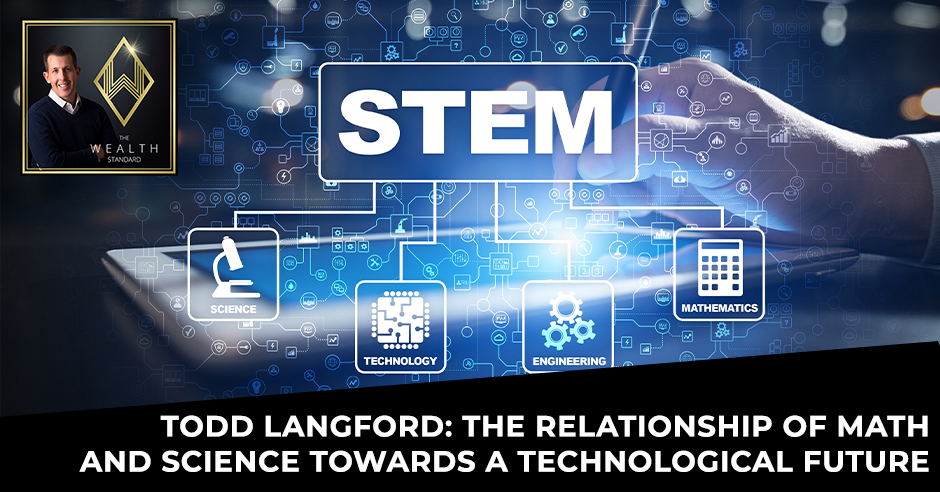



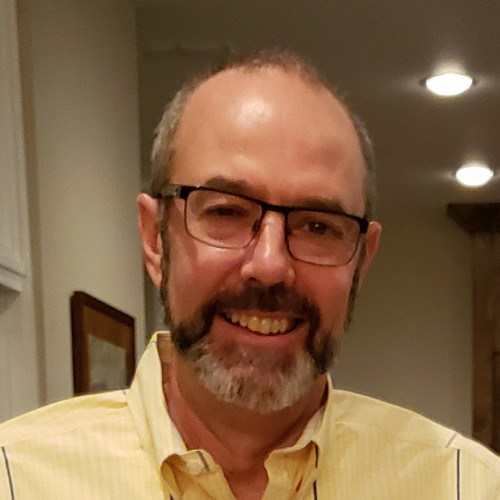 Todd Langford is the Founder & CEO of Truth Concepts, Partners 4 Prosperity, and Prosperity Economics Advisors.
Todd Langford is the Founder & CEO of Truth Concepts, Partners 4 Prosperity, and Prosperity Economics Advisors.
